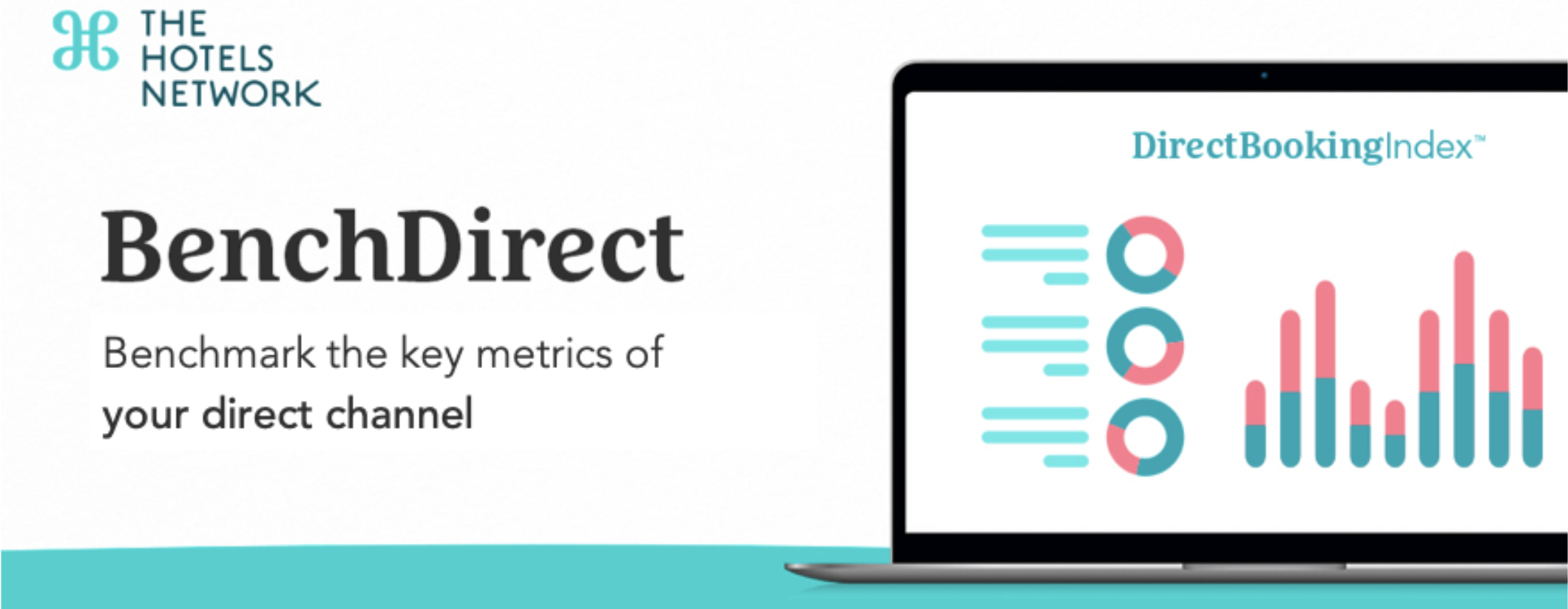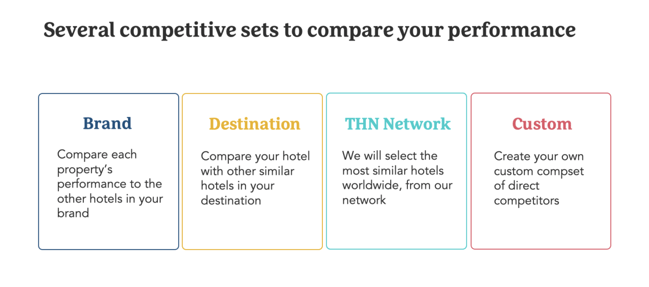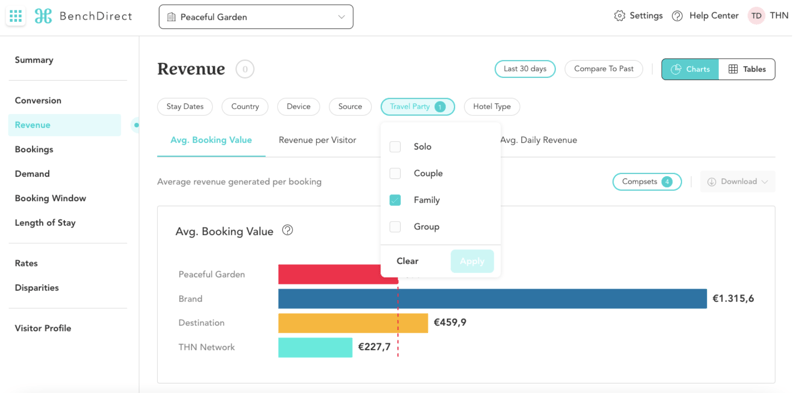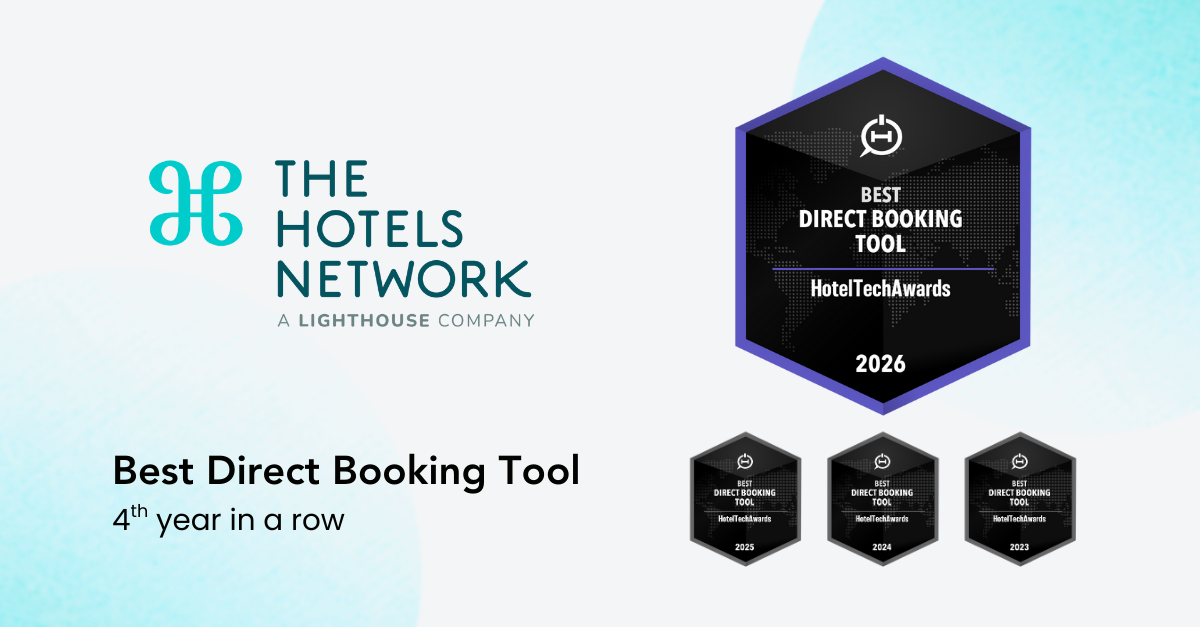Discover how Penta Hotels tripled response rates and boosted direct bookings by using THN’s Form Builder to capture guest preferences and optimize booking incentives.

20, Jul 2021
Perhaps you’ve heard about hotel benchmarking but are not quite sure where to start. How do you define a compset? What kind of metrics can you compare? How should you go about interpreting the results? We’re going to dig a little deeper into all of these points but first, let’s think about why benchmarking your hotel’s performance makes a lot of sense.
We live in a fast-paced world and as a result, many business decisions have shifted from action to reaction, leading to sometimes questionable decision-making. However, thanks to the new software and advanced data analytics available today, it’s now much easier to assess situations in more detail without compromising on time.
This is particularly true in the hospitality industry. Whether your hotel brand has five-star luxury properties or serviced apartments, having accurate and reliable data, and knowing how to effectively use it, is key to developing a successful hotel revenue strategy. And benchmarking tools provide some of the most valuable insights you will find.
Hotel benchmarking allows you to not only monitor your hotel’s own performance but to understand how it compares to the market. It enables you to pinpoint your brand’s strengths and identify areas where you need to improve, providing a clear understanding of your positioning and how you set yourself apart from your competitors. However, it may not always be obvious where to start. And that is exactly why we are sharing this blog, so you can take your first steps into the magical world of hotel benchmarking.
Understanding who is your competition is the first step to outperforming them. Hoteliers sometimes limit themselves by comparing their performance to who they consider their direct competitors, these being similar hotels in the same destination or from the same brand.
In the world we live in today, it is worthwhile to look beyond the traditional idea of a compset to benchmark your hotel and consider dynamic compsets. At THN we believe that you can learn from hotels all around the world in order to understand more about the performance of your property. For example, there is a major learning opportunity to be able to compare your results to properties in an entirely different part of the world but who have a similar profile and get a similar amount of website bookings. By doing so, hoteliers are able to move from a purely competitive mindset to a learning mindset, allowing for much richer insights and findings.

Compsets in THN’s hotel benchmarking platform
Having access to hotel metrics and data is extremely beneficial, but knowing which ones to focus on is key. As a hotelier, it’s important to analyze and compare those metrics that are most relevant to your hotel’s strategy, and be aware of their evolution over time. Traditionally, hoteliers think of occupancy and ADR as the main metrics when it comes to hotel benchmarking whereas there are many more performance indicators that can be evaluated, from your hotel’s online reputation to the frequency of price disparities.
One interesting area to dive into that is not always top-of-mind is your direct channel performance. Comparing metrics such as total website conversion or booking engine conversion will provide you with a clear picture of your hotel’s performance along every step of the booking funnel. What’s more, these benchmarking analytics give you a view of 100% of your direct channel, not just the 2-3% of website traffic that’s converting.
With the move from static monthly PDF reports to interactive benchmarking platforms, there’s no limit to how you can slice and dice the data, and all this in real time. Drilling down on your hotel’s benchmarking data by search dates, travel party or even traffic source is extremely powerful to gain a more detailed understanding of your hotel’s strengths and weaknesses.

For example, imagine filtering your hotel’s average booking value data for a specific travel group: families. By applying this filter, you’ll be able to see how much families spend, on average, for accommodation booked on your own direct website, and compare the results to your compsets. These insights give you a more accurate picture about your property’s situation, helping you to define where you need to adapt your marketing campaigns and strategy based on the findings.
The concept of benchmarking is based on the idea of comparing results, and these can be compared against a previous time period to get a better understanding of the results in context, and to see what changes worked and what may not have worked for your brand, helping with forecasting future results.
However, relying solely on historical data can be irrelevant, especially in current times when past years are not representative of what could be expected. It’s important to look at other data sets in order to get a more appropriate view of your comparative data. Evaluating this week’s performance to last week’s, for example.
Once you have identified the metrics where the difference between your results and your compsets is significant, it's important to look for ways to improve them. But don’t just tackle the ones where your results are low. You should also spot where you are outperforming others to be able to exploit growth opportunities and look for new revenue-generating ideas.
As always, it’s a continuous cycle and so once you have made changes based on the benchmarking insights, it’s interesting to monitor the evolution overtime to see how these actions impact future results.
Luckily, within the hospitality industry, there are various benchmarking tools available to choose from, depending on the area of your business that you want to focus on.
Looking for an easy way to use hotel benchmarking to grow your direct bookings? At The Hotels Network we’ve recently launched BenchDirect – the first benchmarking platform specifically for your hotel’s direct channel. Taking a completely new approach, BenchDirect provides real-time insights for you to understand your hotel’s direct channel performance compared to the market and competition.
And the best part? It’s free for hoteliers, forever. Request your free account today to join the 12,000+ hotels worldwide who are already benchdirecting...

Posted At Jan 29, 2026

Posted At Jan 19, 2026

Posted At Jan 12, 2026
Check out our BenchDirect Insight Reports by destination
